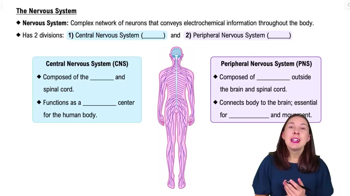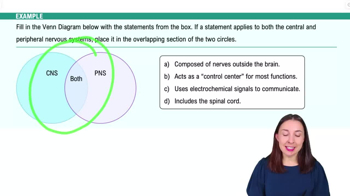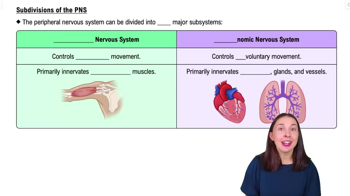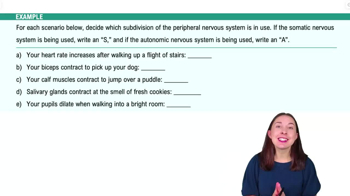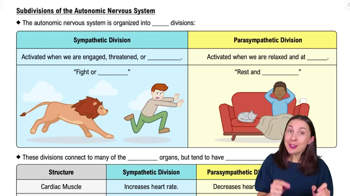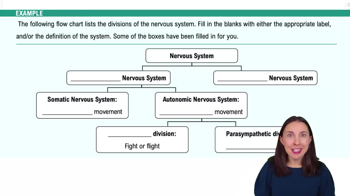Table of contents
- 1. Introduction to Psychology1h 43m
- 2. Psychology Research2h 20m
- 3. Biological Psychology2h 41m
- 4. Sensation and Perception28m
- 5. Consciousness and Sleep32m
- 6. Learning41m
- 7. Memory34m
- 8. Cognition37m
- 9. Emotion and Motivation35m
- 10. Developmental Psychology33m
- 11. Personality48m
- 12. Social Psychology41m
- 13. Stress and Health41m
- 14. Psychological Disorders44m
- 15. Treatment47m
3. Biological Psychology
Organization of the Nervous System
Struggling with Psychology?
Join thousands of students who trust us to help them ace their exams!Watch the first videoMultiple Choice
Which of the following statements is true about the autonomic nervous system?
I) It is a division of the central nervous system.
II) It primarily innervates organs, glands, and vessels.
III) It controls involuntary movement.
A
I & II only.
B
I & III only.
C
II & III only.
D
I, II, & III.
 Verified step by step guidance
Verified step by step guidance1
Understand the structure of the nervous system: The nervous system is divided into the central nervous system (CNS) and the peripheral nervous system (PNS). The autonomic nervous system (ANS) is a part of the PNS, not the CNS.
Identify the role of the autonomic nervous system: The ANS primarily innervates organs, glands, and blood vessels, which aligns with statement II.
Recognize the function of the autonomic nervous system: The ANS controls involuntary movements such as heart rate, digestion, and respiratory rate, which aligns with statement III.
Evaluate statement I: Since the ANS is part of the peripheral nervous system, statement I is incorrect.
Conclude which statements are true: Based on the analysis, statements II and III are true about the autonomic nervous system.

 2:03m
2:03mWatch next
Master The Nervous System with a bite sized video explanation from Hannah Gordils
Start learningRelated Videos
Related Practice

